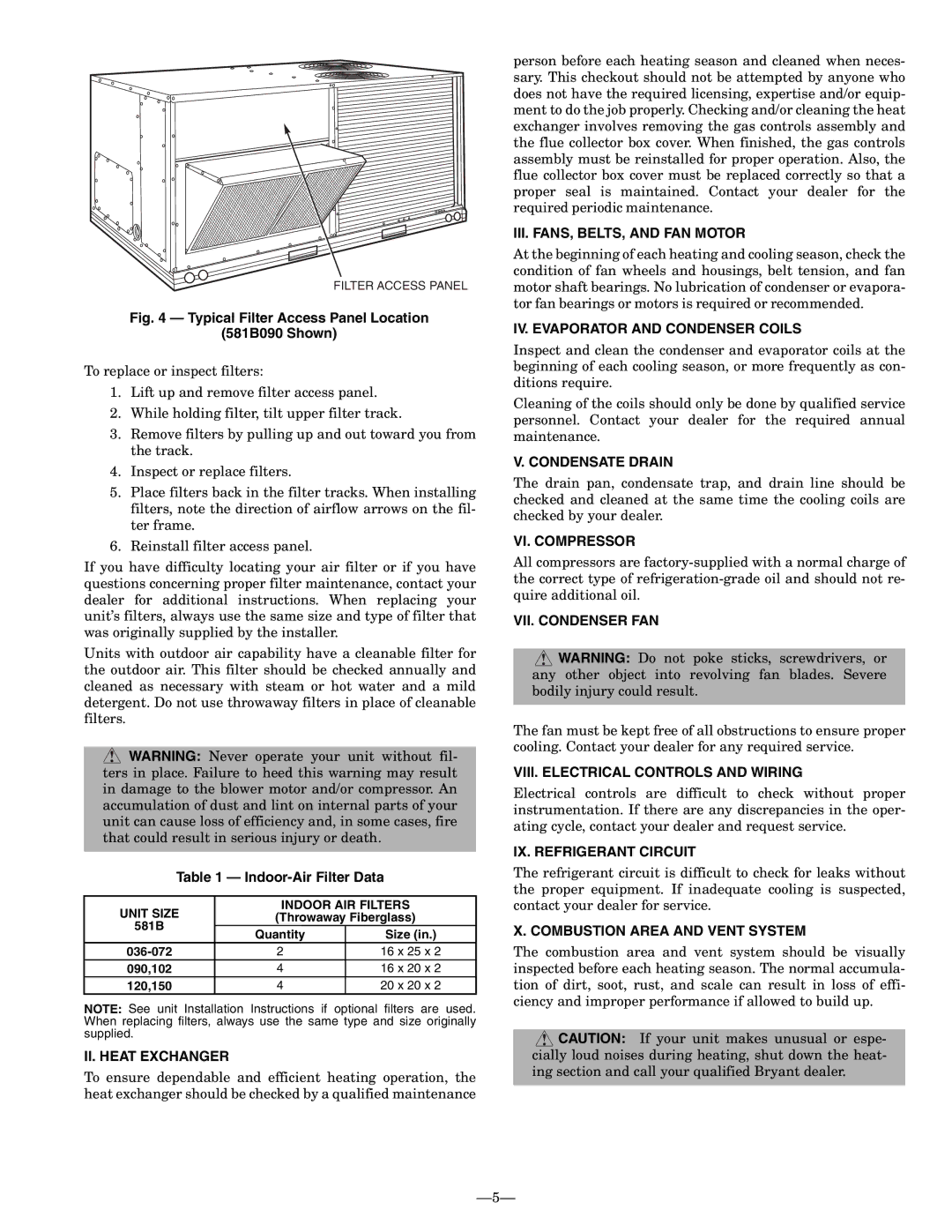OM11-19 specifications
The Bryant OM11-19 is an innovative piece of equipment designed for optimal performance and efficiency in various applications. Known for its reliability and advanced features, the OM11-19 stands out in the market.One of the main features of the Bryant OM11-19 is its robust design. The construction is engineered to endure harsh conditions, making it suitable for both indoor and outdoor use. Its durable materials ensure longevity, which significantly reduces maintenance costs over time.
Equipped with a state-of-the-art energy management system, the OM11-19 excels in energy efficiency. This feature not only minimizes operational costs but also supports sustainability efforts. The system continuously monitors energy consumption and adjusts operational parameters accordingly, ensuring that energy use is optimized without compromising performance.
Another notable aspect is its intuitive control interface. The Bryant OM11-19 features advanced digital controls that provide users with straightforward operation and easy programming capabilities. This user-friendly interface facilitates quick adjustments and real-time monitoring, ensuring peak performance at all times.
The OM11-19 is also designed with versatility in mind. It is compatible with various attachments and upgrades, allowing users to customize the equipment to better fit their specific needs. This adaptability makes it a favored choice across different industries, including construction, manufacturing, and logistics.
Safety is a top priority in the design of the OM11-19. It comes equipped with several safety features such as overheat protection, automatic shut-off, and emergency stop functions. These systems are designed to protect both the equipment and users, creating a safe working environment.
In terms of technology, the Bryant OM11-19 incorporates the latest advancements in automation and sensor technology. These integrated systems enhance operational reliability and performance. Users benefit from real-time data analytics, allowing them to make informed decisions quickly.
In summary, the Bryant OM11-19 is a highly efficient and versatile piece of equipment that combines durability, advanced technology, and user-friendly features. Its robust design, energy management system, and focus on safety make it an attractive option for a variety of applications, delivering outstanding performance in any setting. Whether for industrial use or more specialized applications, the OM11-19 stands out as a competitive and reliable choice in the market.

